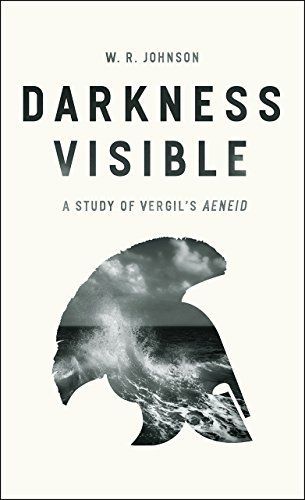
Darkness Visible A Study of Vergil's "Aeneid"
W. R. Johnson confronts the inherent (and much commented upon) melancholy of Vergil's poem, and gives us an interpretation as brilliant and as it is original. He questions accepted readings that emphasize Vergil's faith in empire. Instead, he points to Vergil's multiple allegories, his lyrical and enigmatic style, and the ways in which Vergil teaches us about darkness. Using close readings and comparisons to Homer, Johnson reveals how wise and moving theAeneid can be. No poet,” he writes, not Dante himself, has imagined the disintegration of justice and truth with such precision and power, and for this reason no poet, not Homer himself, has shown how precious and how fragile are the formation and equilibrium of man's integrity of spirit.”